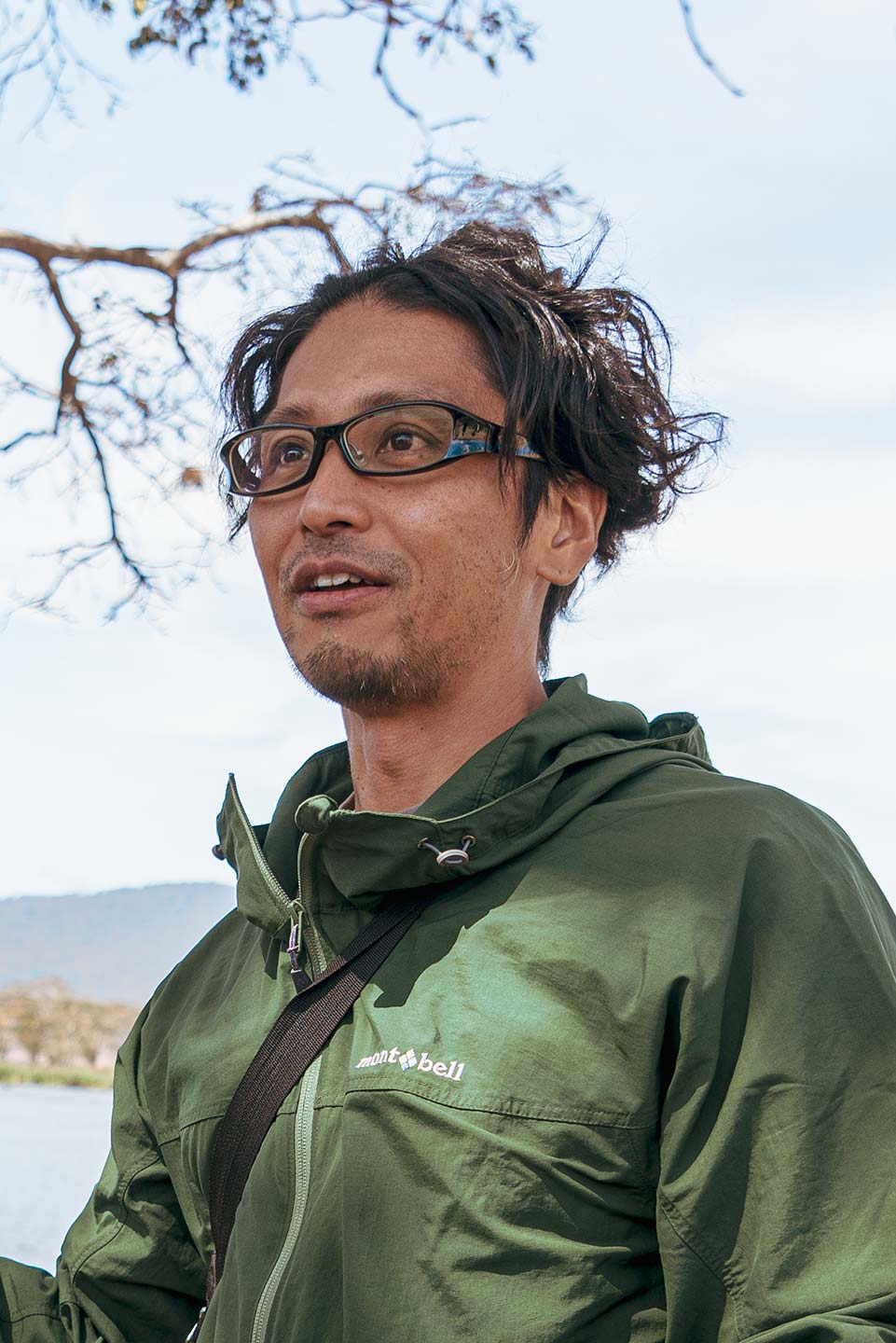
Doing Good Business with Good People
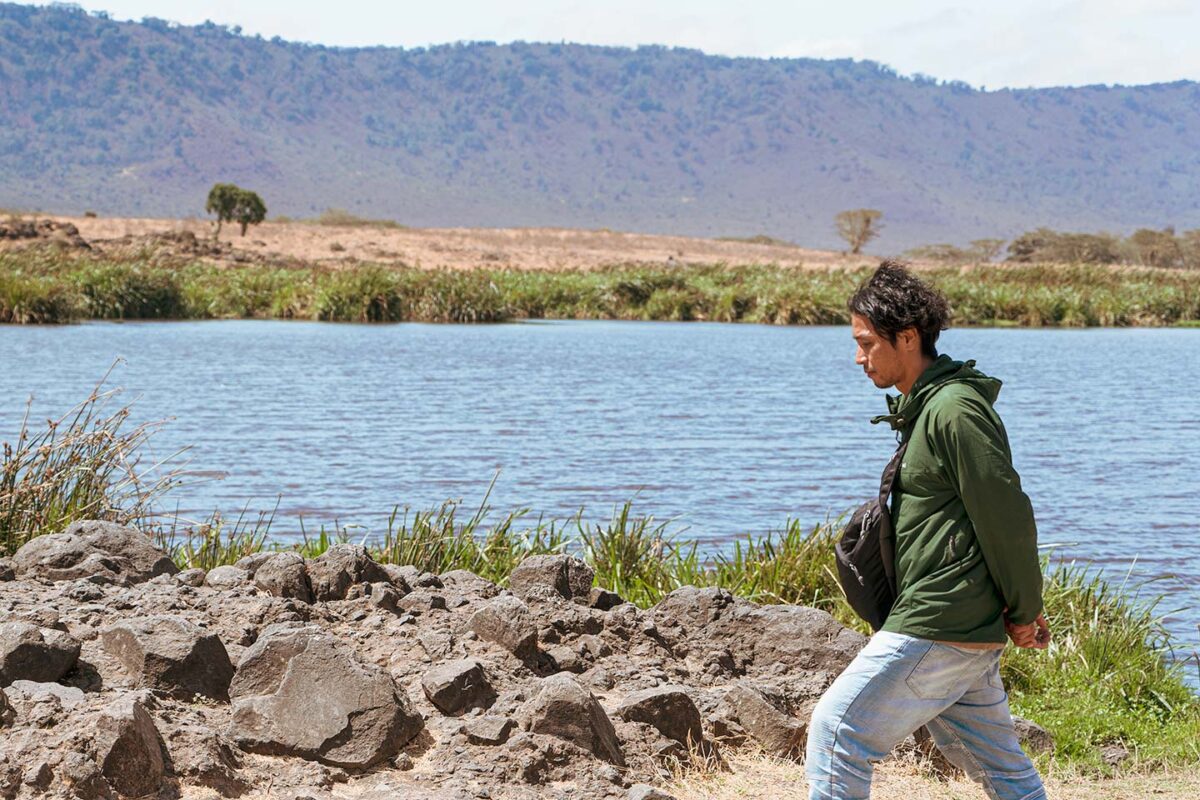
Mame Porepore is a specialty coffee shop in Okinawa, founded in 2010 by Okinawan-local, Yoshiyuki Nakamura. In 2018, Yoshiyuki won the Japan Coffee Roasting Championship and was runner-up at the World Coffee Roasting Championship. In 2022, he once again beat the competition to become the Japan Champion and is currently getting ready for the world competition. Ten years have passed since he opened his shop, but in his first trip to Africa, Yoshiyuki discovered that his passion for innovation and adventure in coffee have not changed.
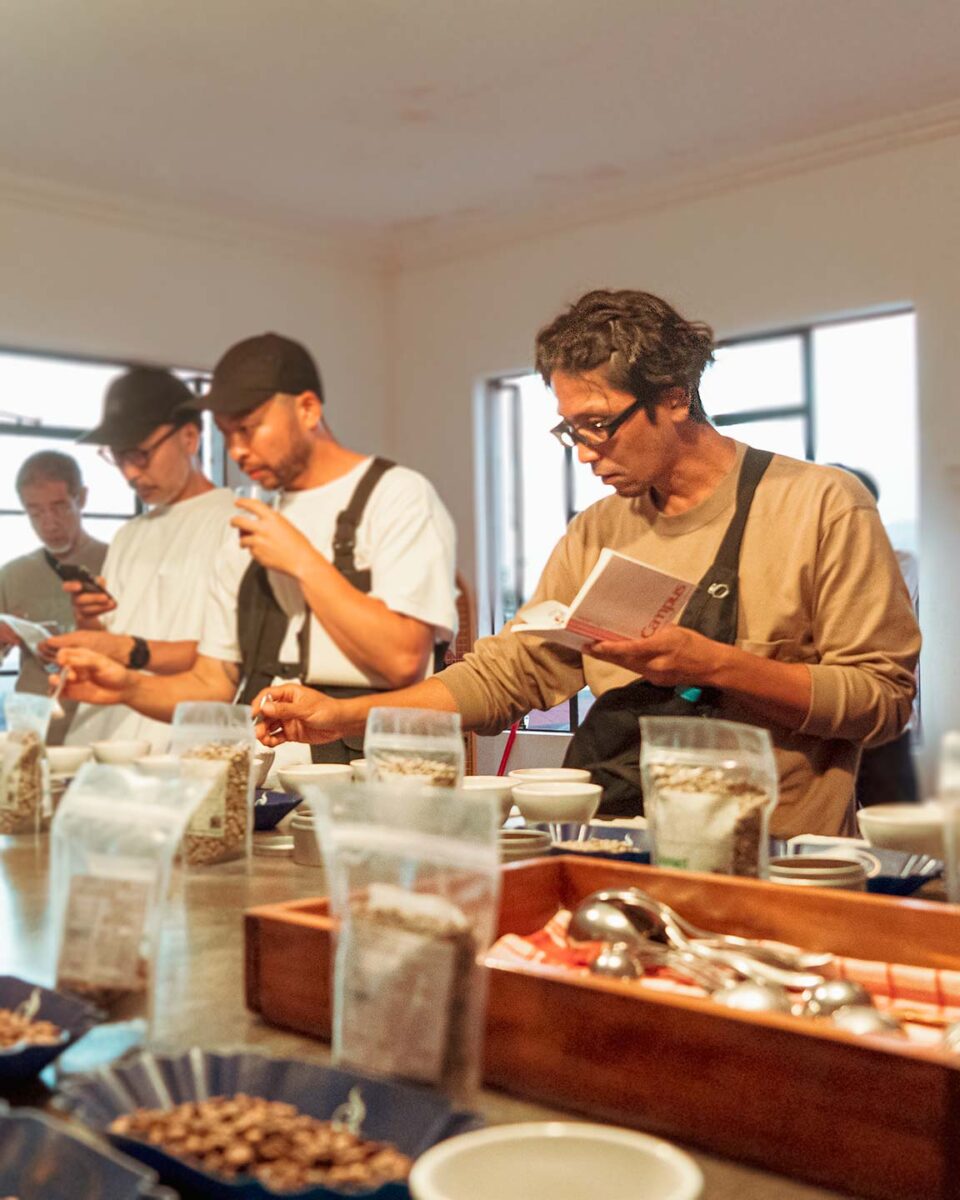
The person flavors the bean
What stands out most for me from this trip is the visit to Tanzania. It’s not the first country you think of when naming quality coffee, so I wasn’t expecting much. Which is why everything about that experience was eye-opening, in a good way.
At Leon’s farms (Acacia Hills, Tembo Tembo) I had the chance to cup several coffees, mostly Kent variety but also Pacamara and Geisha. Each had the authentic flavor you would expect, and I could taste a lot of variety between the coffees.
During the tasting, there were some really excellent cups, but there were others where the processing technique didn’t quite bring out the best flavor. When I asked Leon about it, he told me it was done that way on the request of a particular roaster. Watching Leon, I could tell that he was listening carefully to everything we said, taking mental notes that would help him make the best bean possible. I knew that here was someone who was willing to try anything to make his produce better. I’m excited about watching him grow.
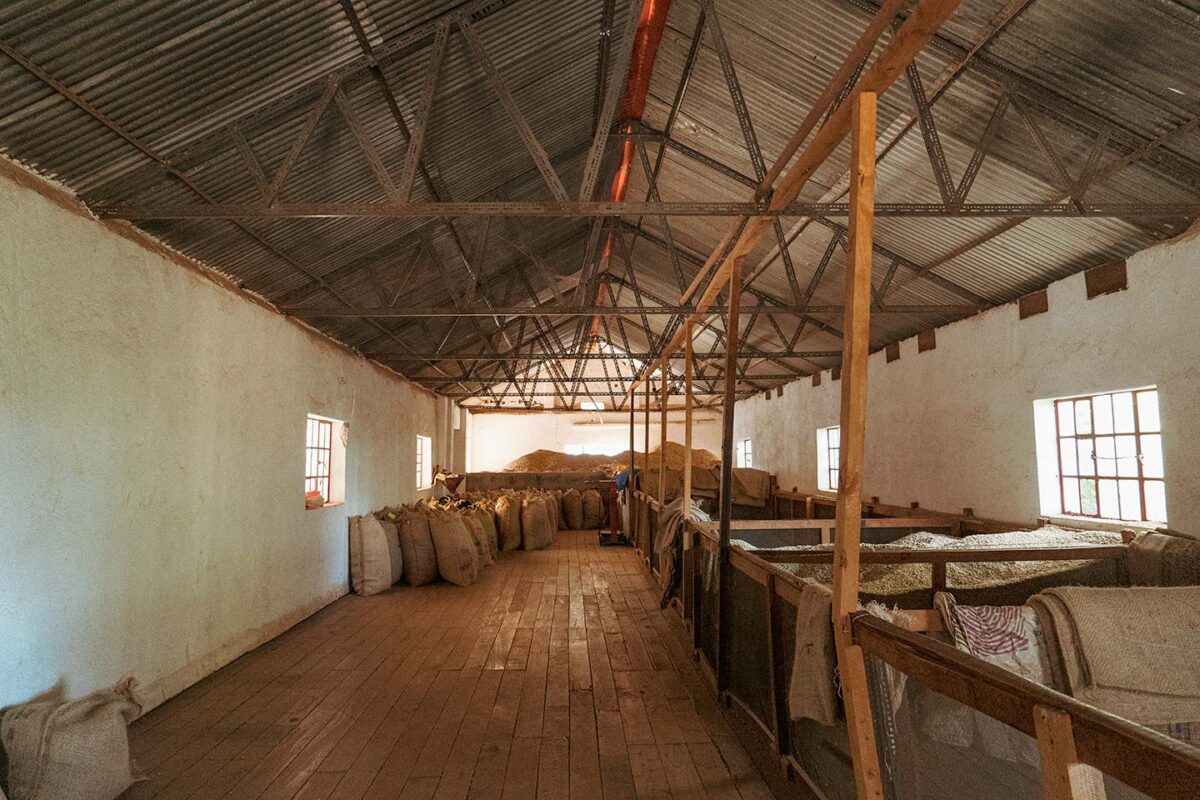
I was also struck by how neat and organized the farm and the warehouse for storing the beans were. This can tell you a lot about the producer and it gave me the impression that he really cared about his produce.
After getting back to Japan, I received the four bean varieties that I’d ordered from Leon. I also bought a Geisha from a different farm to give my customers an idea of the different nuances. I plan to put this together as a coffee tasting set.
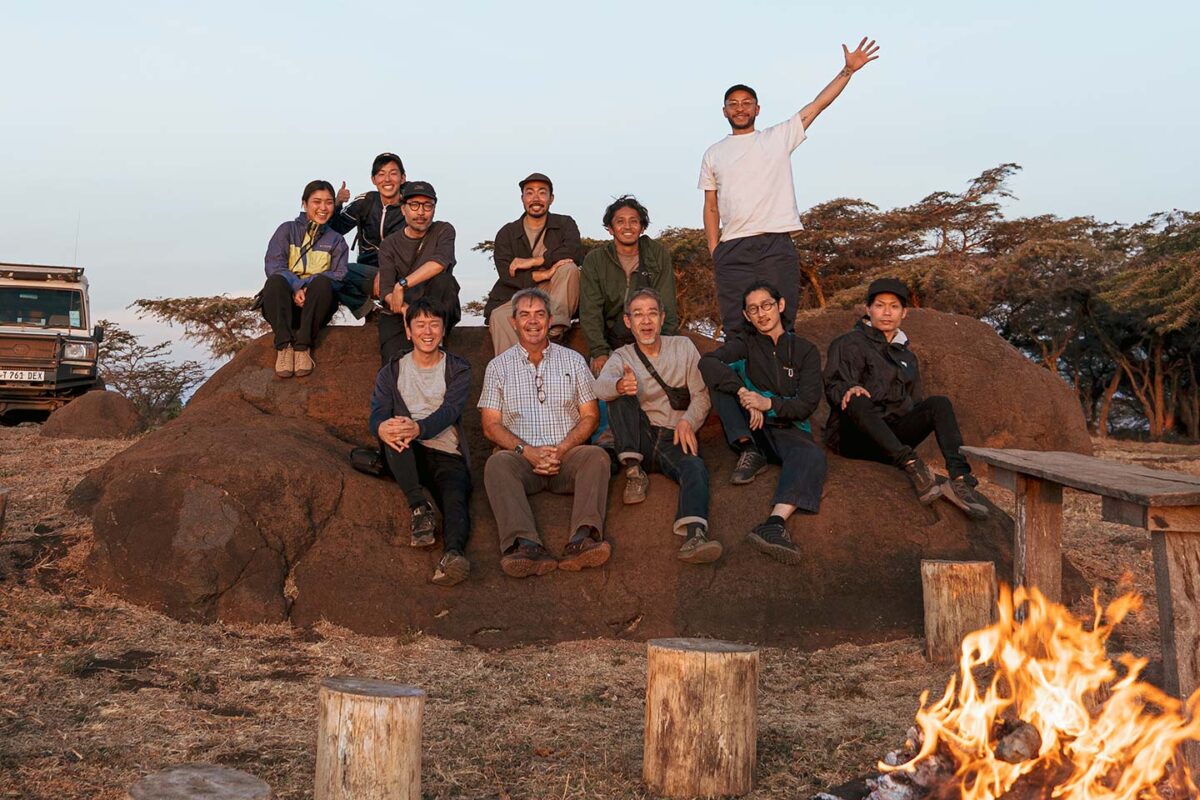
For me, those four days in Tanzania were about getting to know what kind of a person Leon was. I remember we climbed up a hill to have a drink, and we sat looking over this amazing view, watching the sun set behind the mountains. There were so many incidents like that where Leon went out of his way to make us feel welcome and gave us his precious time. It made me want to support him. Beans take on the character of the person who grows them, and Leon’s are definitely representative of his good character.
That time spent with Leon also makes me value his produce. I want to tell my customers about it, about him, and share my experiences.

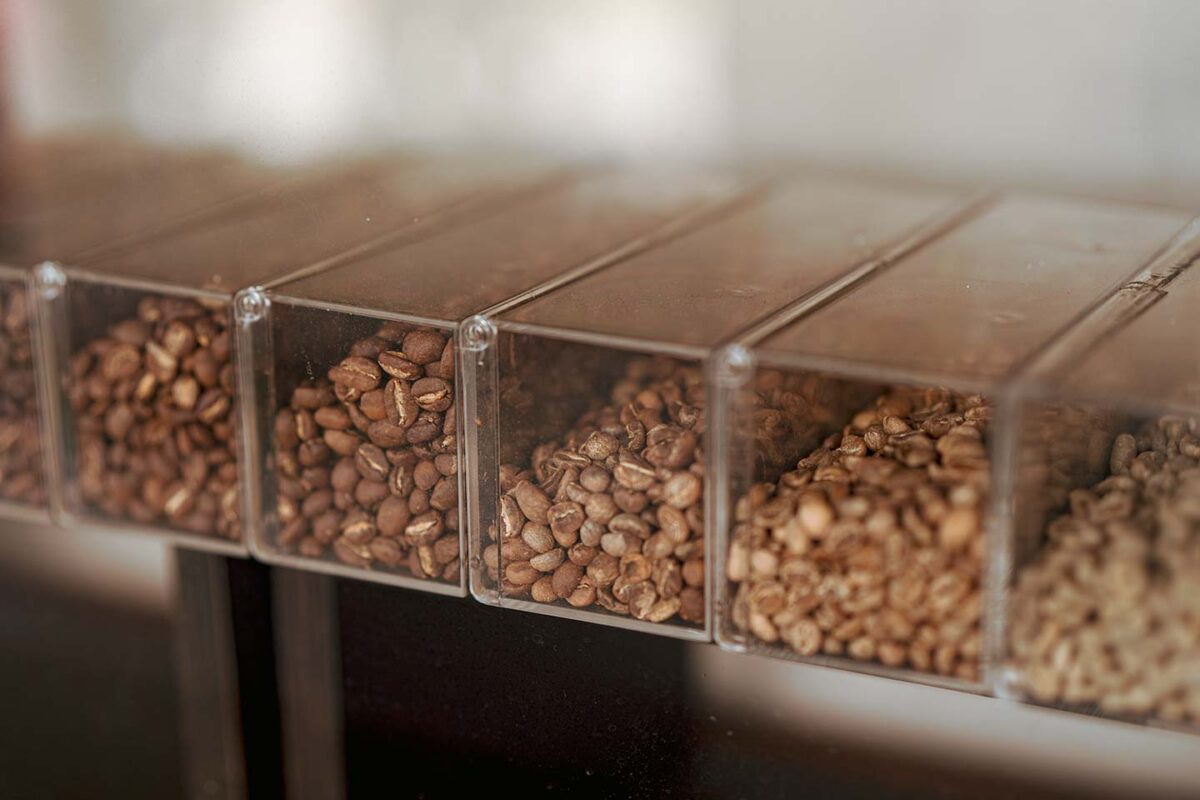
Enjoying something evolve
We’ve always prioritized variety at Mame Porepore. We have a tasting set that lets you compare two coffee varieties from the same origin, coupling together a classic variety with something less obvious. It’s hard to say what is a classic for Tanzania right now, so the tasting set will be more about noticing and enjoying the differences.
We shouldn’t have preconceptions about coffee, judging whether something is good or bad from the type or origin. Because where, how and who it’s produced by all have an effect on the quality and flavor. That’s what I want to share with my customers. Each coffee is individual and deserves a chance. And this is why I started my shop. I wanted to share my coffee experiences and discoveries with other people.
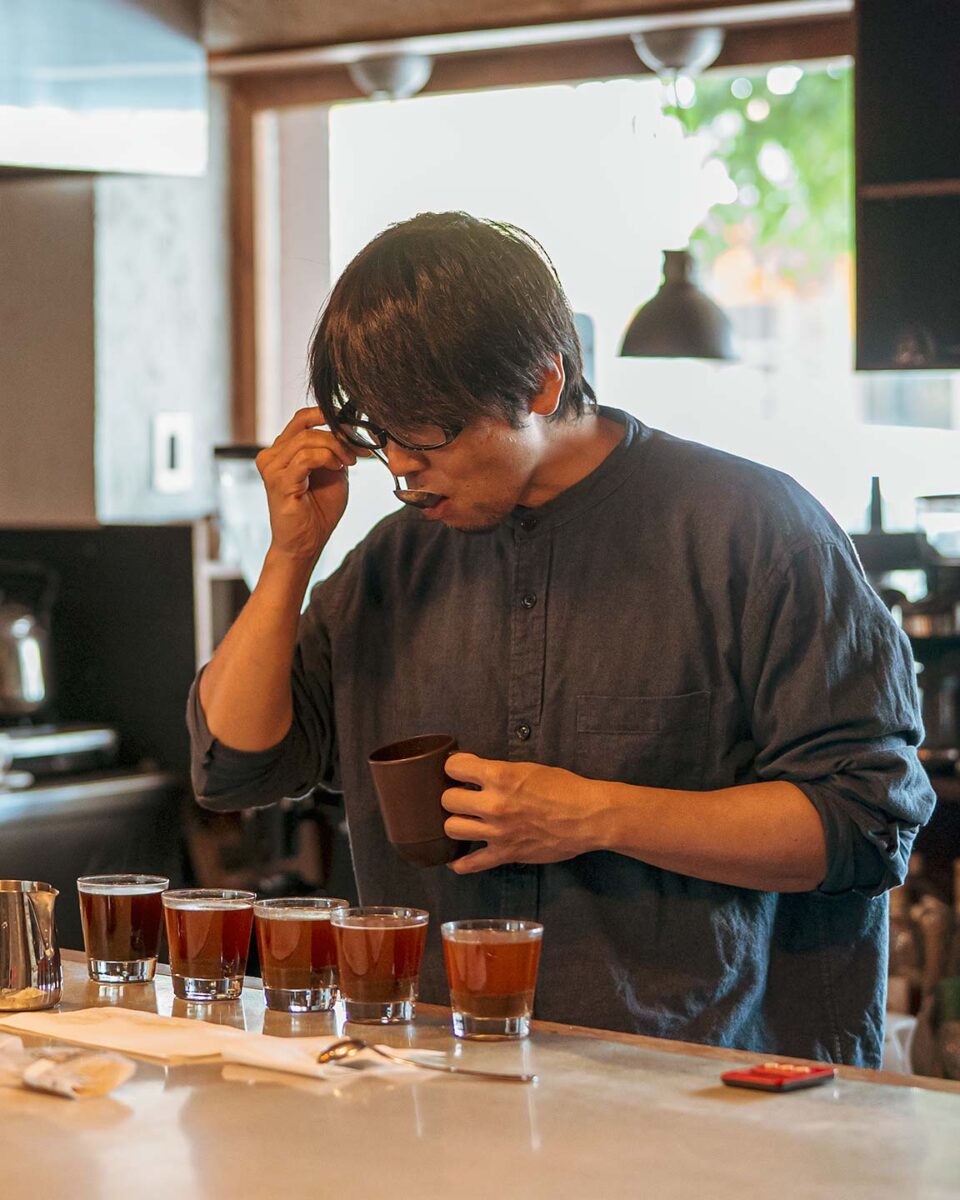
Of course, there are other ways to enjoy coffee. Six, seven years ago I visited Guatemala, and the producer told me that he was going to try and grow Geisha.
Four years later, he sent me a sample of his first harvest. The trees were still young so the flavor was mild and had not fully matured, but I could feel the potential there so I decided to buy it. Even if the flavor is not quite there, that in itself is something to experience. Something you can only try once – and that’s what makes it special.
In the shop, we now have the second year harvest of Geisha from that producer, and the flavor is sweeter and richer, and the quality is much better than the first year. I can tell that it’s just going to keep getting better and better, and sharing with my customers the excitement of watching something evolve is what makes this job worthwhile.
And that’s how I felt about Leon. I could see the potential there. I can’t wait to see how we will grow and evolve.
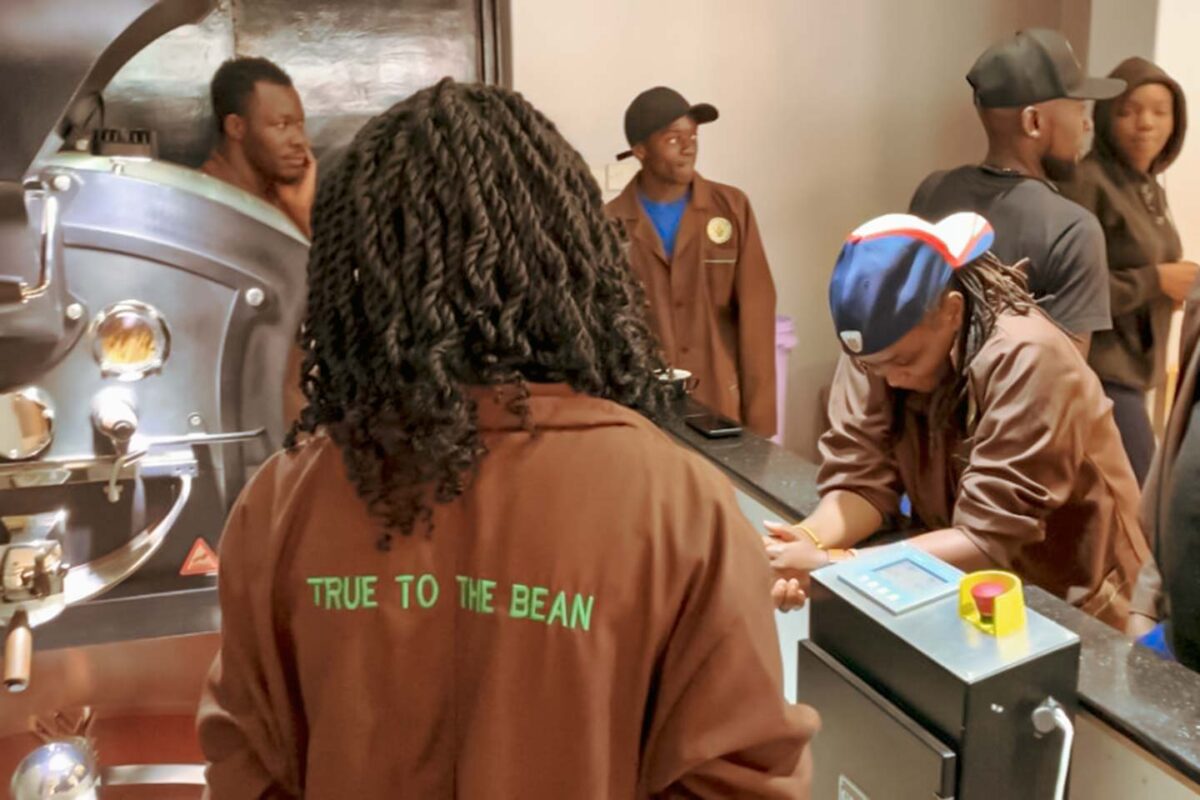
Fun draws a crowd
In Kenya, I visited three specialty coffee roasters and cafes. One shop had the top three AeroPress champions in the country, and I also met Kenya’s champion barista. What struck me most was how much they all love what they do.
Right now, the quality of coffee served in Kenya is not great. But the market for specialty coffee is going to keep growing, and if the barista and roasters work with the producers, it’ll bring about a huge change so I’m excited to see what’s going to happen in Kenya in the next few years.
Fun attracts people and when lots of people come together, anything can happen. It’s the same in Japan, it’s the same everywhere.
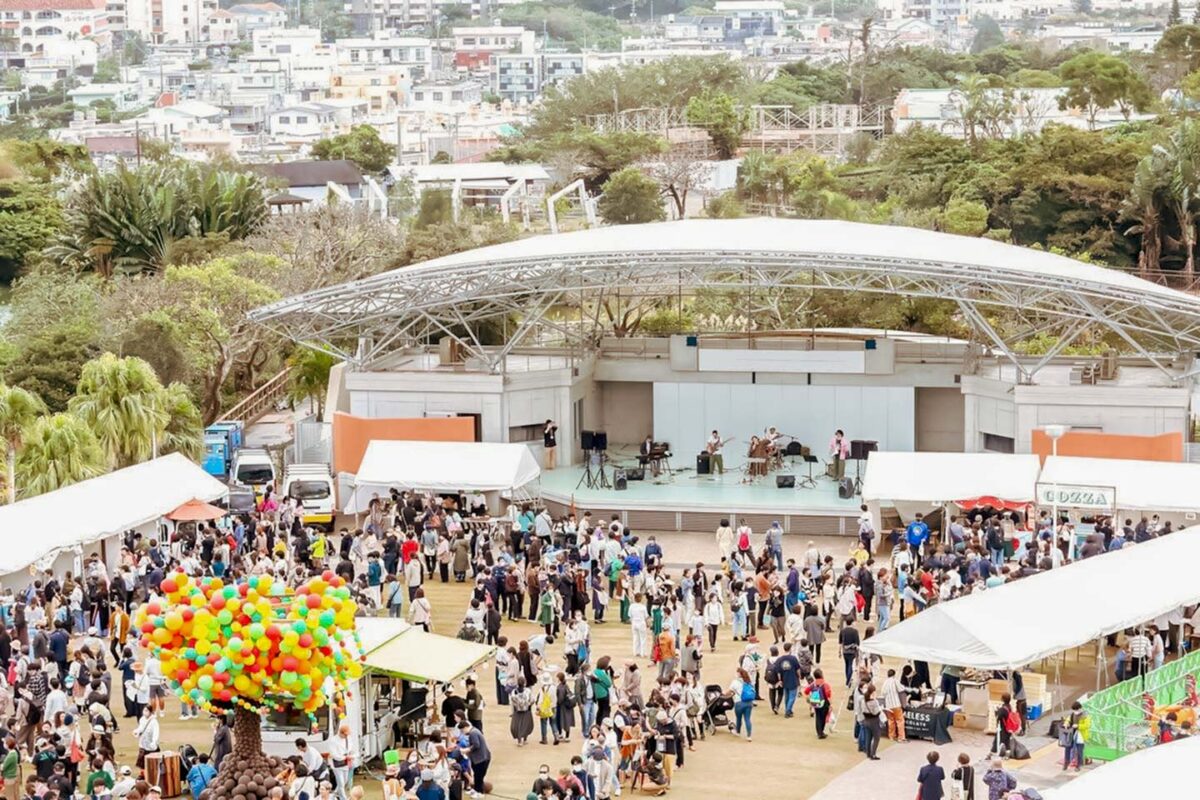
We’ve hosted events three times in the past: The Okinawa Coffee Festival in 2016 and 2019, and the Okinawa Coffee Numa Day in 2023. Getting lots of people involved gives you the potential and momentum to do more on a bigger scale. And if we’re having a good time, then the customers will too, and the people entering the competition get a lot out of it as well.
Looking at the Numa Day event, which had around 10,000 people attending, we can see the huge potential for specialty coffee in Okinawa.
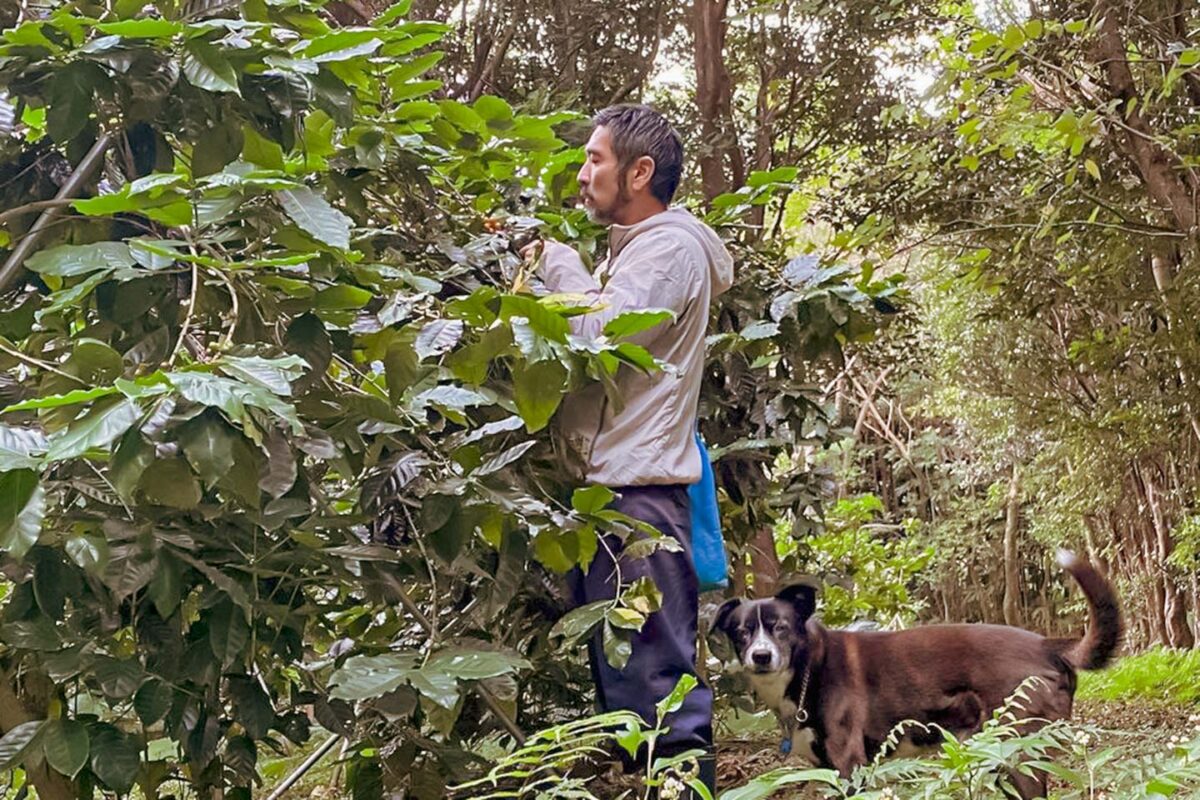
Supporting commitment and passion
In the last few years, I’ve seen more people get into coffee farming in Okinawa. In 2016, Ada Farm was the first in Japan to be certified for specialty coffee, and I think that kicked off the trend. Okinawa is right at the northern limit of places suitable for coffee production (areas which are 25 degrees north or south of the equator). With its low altitude and high frequency of natural disasters, it’s not an easy place to grow coffee.
Which means that anyone who decides to do it has to be very committed and passionate about it. It’s a true labor of love. And knowing that makes me want to give my support.
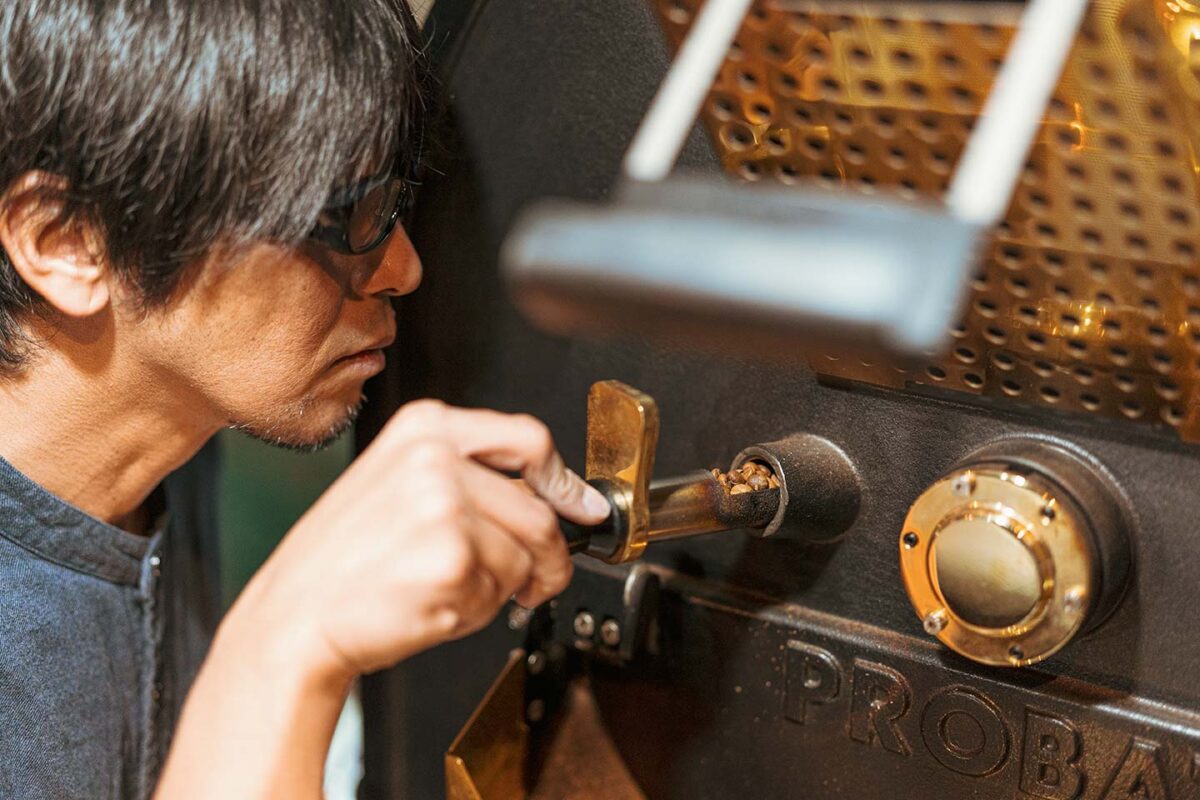
When a producer wins a competition which rates quality, like Cup of Excellence, I know that it means they’ve put in everything to get this result. It’s the culmination of their hard work and naturally I want to support that. As someone who has entered roasting competitions in the past, I know how much time, work, and money it takes to get a good result.
That’s why when I come across a producer trying something new, I’ll buy it, regardless of the quality. I know there’s a risk there and it’s not always recognized by my customers, but I want to support people who are innovating, people who are trying something different or new. That’s always first in my mind.
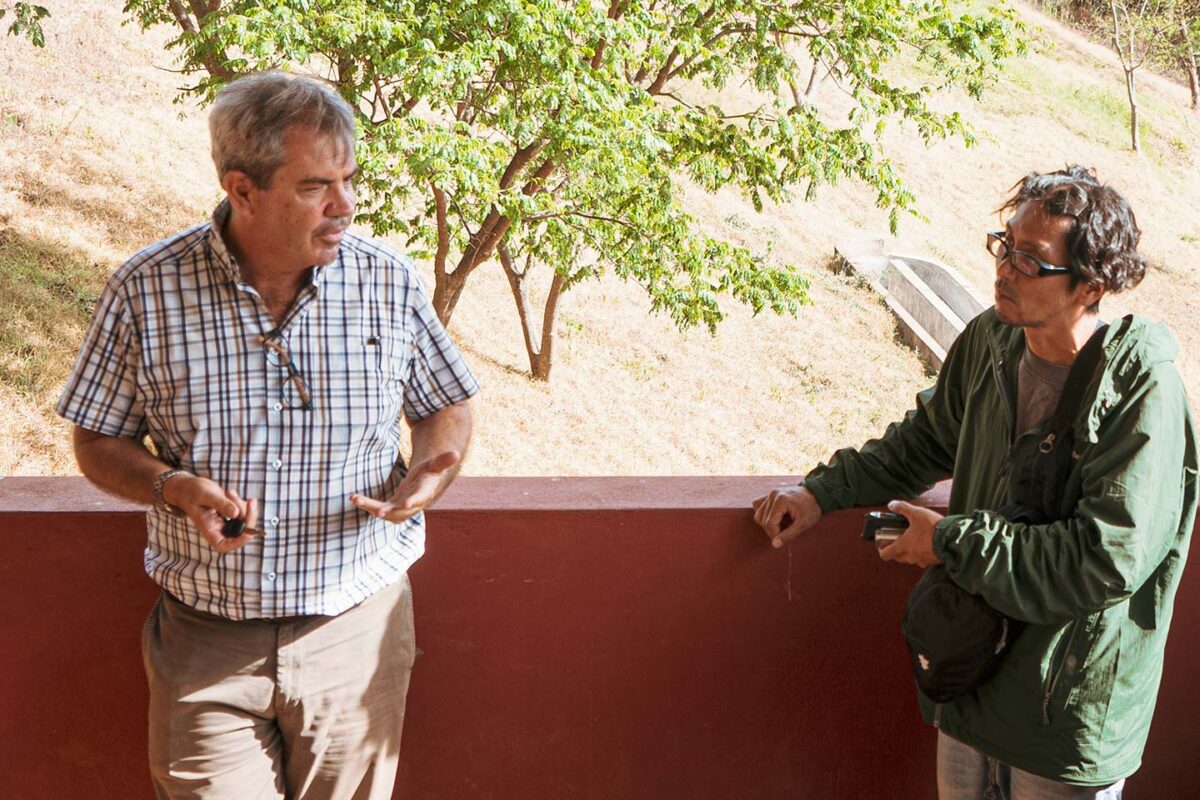
For me, meeting someone like Leon, who is 100% committed to creating the best possible produce, made this trip more than worthwhile. I’ve been to many producing areas in different countries, but wherever I go, it’s not about the country or the farm or the variety. It’s all about finding the right person. And this time, I met one in Tanzania. In the end, it’s not about coffee, it’s all about people.